
The Japan cherry blossom festival - Hanoi 2019 opened at the King Ly Thai To Flower Garden in Hanoi on the evening of March 29, featuring various unique cultural and artistic performances by both nations.
Held
for the fourth consecutive year, the festival is jointly organised by the Hanoi
People's Committee and the Japanese Embassy in Vietnam, featuring 100 cherry
blossoms trees and 20,000 branches, plus various kinds of local flowers modeled
into famous landscapes and symbols of the two countries.
Speaking at the opening
ceremony, Vice Chairman of Hanoi municipal People's Committee, Ngo Van Quy,
said that the festival continues to introduce and promote Japanese cultural
beauty and people to the locals of Hanoi, helping to further strengthen the
understanding, trust and cohesion between the people of the two countries.
It is also an opportunity to
exchange experiences and cooperate in the fields of culture, education, health,
tourism and economy between Hanoi and Japan, Quy added.
During the weekend, various
activities introducing the Japanese and Vietnamese cultures will take place at
different spaces in the pedestrian zone around Hoan Kiem Lake from Friday
evening to the end of March, offering an attractive cultural space for Hanoians
and tourists.
On the opening night, the
public were treated to a range of special art performances by both Japanese and
Vietnamese artists, as well as enjoying the beauty of Japanese cherry blossoms.
Following are some pictures from
the festival:
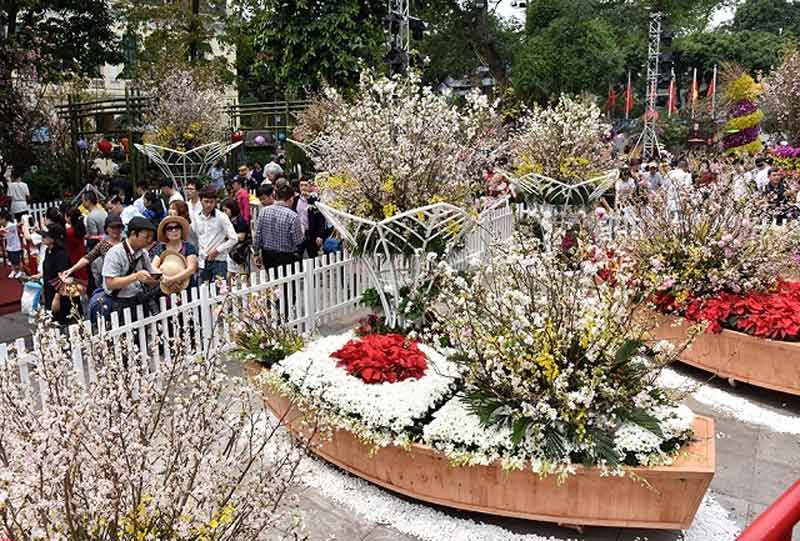 Visitors to
the Japanese cherry blossom 2019, which opened in Hanoi on March 29.
Visitors to
the Japanese cherry blossom 2019, which opened in Hanoi on March 29.
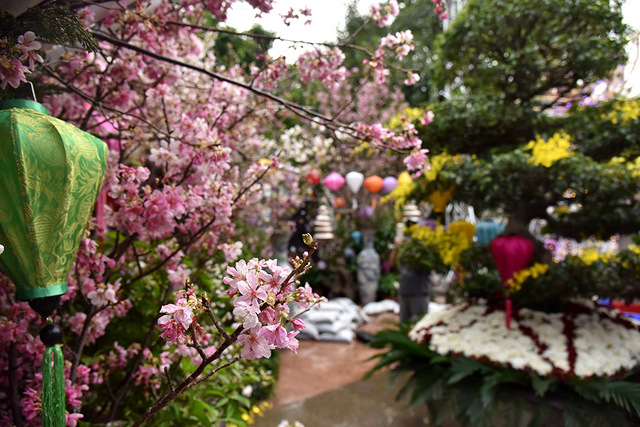
The festival features 100 cherry blossoms trees
and 20,000 branches, plus various kinds of local flowers.
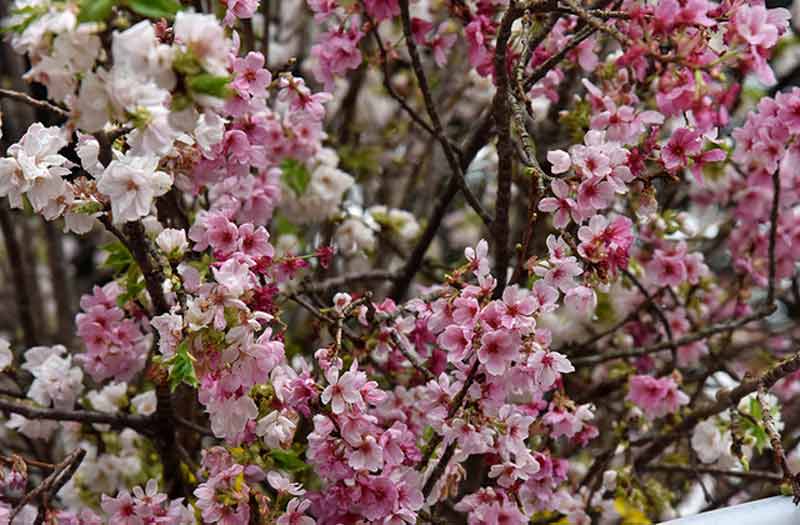
The cherry blossoms, though having undergone a
long process of transportation, are still fresh and vibrant in the spring
sunshine of Hanoi.
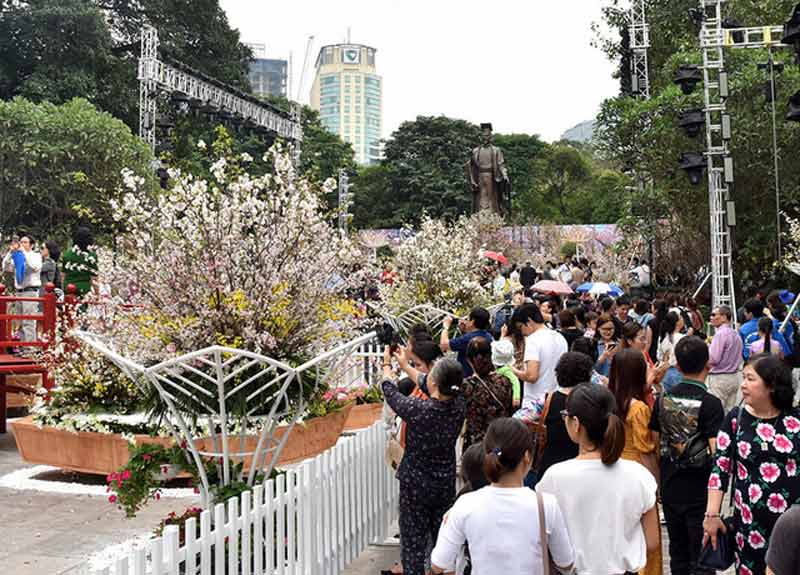
In its 4th season, the festival has become a
regular cultural event, contributing to promoting exchanges and cooperation in
all aspects between Vietnam - Japan in general and Hanoi - Japan in particular.
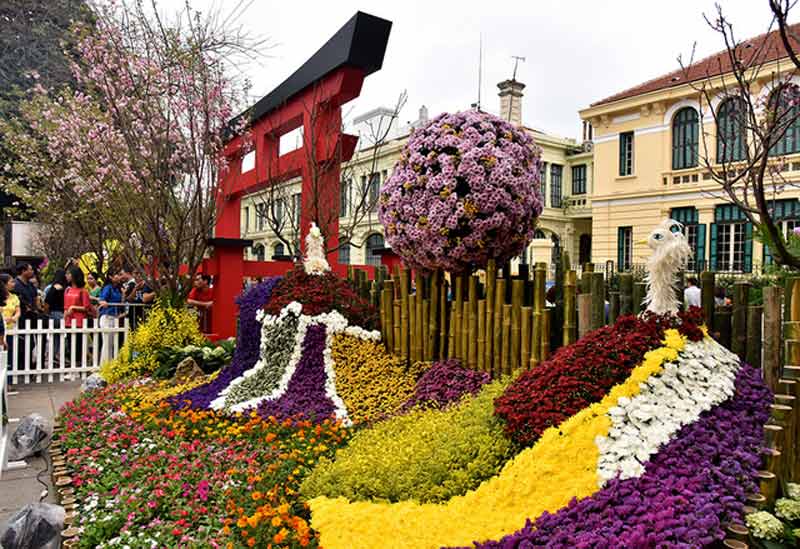
Many famous destinations in both Vietnam and
Japan are recreated with flowers at the festival.
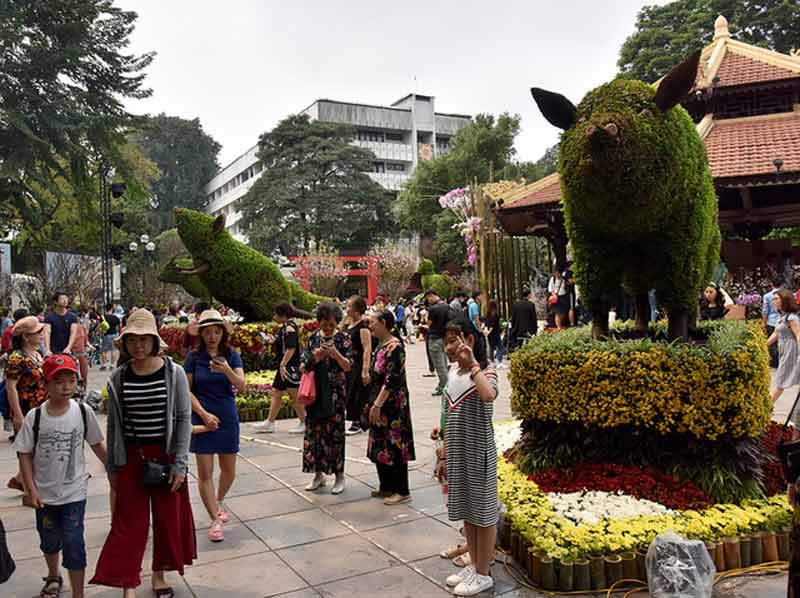
Source: NDO
In the last historic days of April, blending with the joyful atmosphere of the whole country, on the streets of Hoa Binh City, flags, banners and slogans are brilliantly decorated to celebrate the 50th Anniversary of Southern Liberation and National Reunification. Here are the records from Hoa Binh newspaper’s reporters:
Nestled halfway up the mountains in Cao Son commune, Da Bac district, Sung village appears like a picture preserved intact through generations. With a history of over 300 years, the village is home to nearly 100 households of Dao Tien ethnic group – the people who still maintain their distinctive characteristics in housing architecture, clothing, customs and traditional crafts. The village is drawing increasing interest and exploration from both domestic and international tourists, as every visit becomes a cultural journey to experience the authenticity, friendliness, and hospitality of this highland region.
This Spring, more than 1,000 phoenix trees in Thang Hamlet, Thach Yen Commune (Cao Phong) have bloomed brilliantly, quickly spreading on social media. The picturesque beauty of the flower garden has attracted the participation of many people to admire and take photos.
This belief is both a guiding principle and a lifelong ambition for Sa Van Cam, a member of the Tay ethnic group in Da Bac district and a passionate advocate for the Tay culture. The native has devoted years to the revival, preservation, and teaching of the ancient Tay script.
Located just 25 km from Hoa Binh city and approximately 100km from Hanoi, with a journey of around 1 hour 45 minutes, Ngoi Hoa ecotourism site (PriorBay Resort) in Suoi Hoa commune, Tan Lac district, is a stunning peninsula retreat, and a standout destination within the Hoa Binh Reservoir tourism area. Officially opening in February this year, the resort captivates visitors with its distinctive vacation products and a range of exciting adventure experiences.
Over 1,500 women paraded in traditional ao dai (long dress) at Hoa Binh Square on March 5 to mark Ao Dai Week 2025 launched by the Vietnam Women's Union. Organised by the provincial Women’s Union in collaboration with the city’s chapter, the annual event features lively folk dance performances and a colorful parade that celebrated the beauty of Vietnam’s traditional dress and its rich cultural heritage.



 Visitors to
the Japanese cherry blossom 2019, which opened in Hanoi on March 29.
Visitors to
the Japanese cherry blossom 2019, which opened in Hanoi on March 29.



